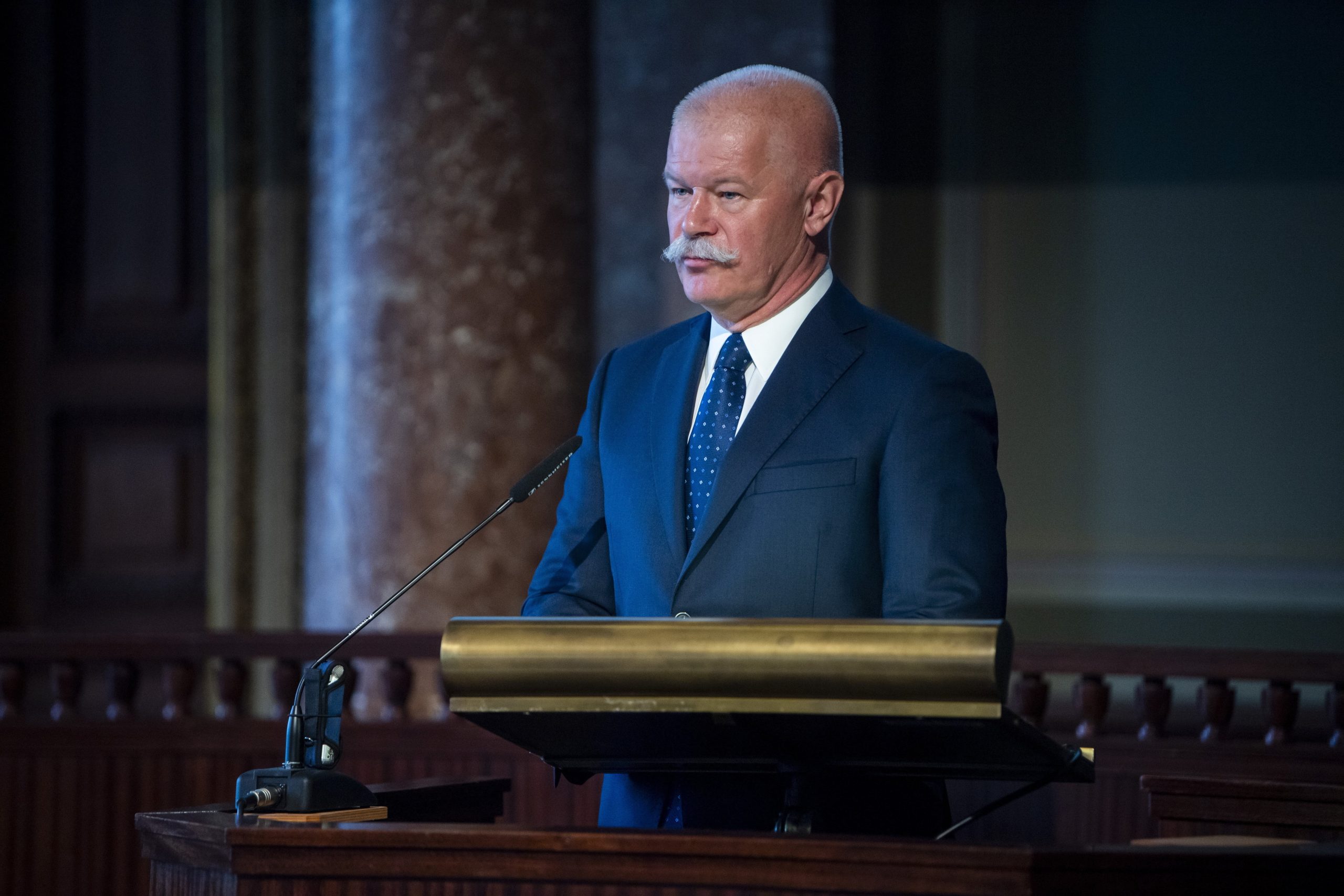
János Csák said that innovation requires curiosity, creativity, beneficial risk-taking, and collaboration.Continue reading

Hungary is in great need of developments in quantum communication infrastructure, and for these to be implemented in Hungary, Minister of Culture and Innovation, János Csák, said on Tuesday at a quantum computing demonstration at Eötvös Loránd University in Budapest.
At the demonstration, researchers from the Faculty of Informatics of the Eötvös Loránd University (ELTE) demonstrated the physically secure sharing of encryption keys between the university’s Lágymányos and Trefort campuses using quantum-based key distribution over a traditional fiber-optic telecommunications network.
János Csák welcomed and congratulated the researchers on the demonstrated quantum technology applications. He said that the most important thing is to turn public scientific collaborations into products. He pointed out that it is the responsibility of the government to ensure the future of the country and the security of the people, take care of their loved ones, and cherish their bonds.
If knowledge is not turned into a product, we will be left behind,”
he said, adding that in the end, the winner is always the one who has control over the product. Quantum computing and quantum communications are now the world’s leading technologies, he pointed out.
László Borhy, the rector of ELTE, said that the country could join the software development sector in quantum technology, where it could play a leading role.
ELTE’s faculties of computer science and natural sciences have acquired a world-leading photonic processor, unique in Central Europe, for research work at the National Laboratory for Quantum Computing. This will be a key tool for competitive basic and applied research, supporting ELTE’s scientific weight and international visibility in quantum informatics, he said.
The freely available Piquasso simulator developed by Tamás Kozsik and his research group at ELTE’s Faculty of Informatics, is among the best in the world in terms of efficiency. In some calculations, the application is up to four times faster than the simulator developed by the current market leader, Xanadu, a Canadian start-up, they said.
Associate Professor Tamás Kozsik said that some of the current encryption procedures protecting our data could become obsolete and hackable with the advent of quantum computers, and quantum encryption is of particular importance for financial and economic networks.
He noted that the EU launched the European Quantum Communication Infrastructure (EuroQCI) initiative in 2019, which Hungary joined. The QCIHungary consortium, which won the tender, aims to lay the foundations for a national quantum communications infrastructure in Hungary. The members of the consortium are the Governmental Information Technology Development Agency (KIFÜ), the Wigner Research Center for Physics, the ELTE Faculty of Informatics, and BME-VIK. The quantum computing research in Hungary will be coordinated by the National Laboratory for Quantum Computing,” said Kozsik.
Featured image: illustration via Pixabay